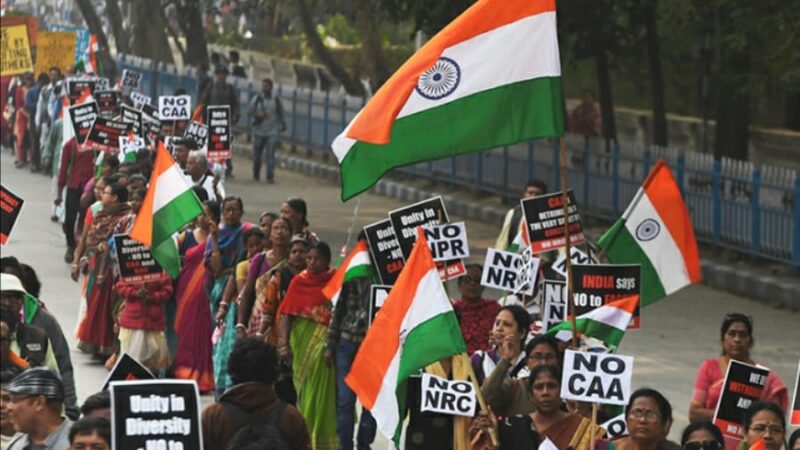WOMEN—THROUGH THE AGES

More than five thousand years ago, there was a woman. A woman named Ahilya, created by Lord Brahma himself, to be the most beautiful woman in the entire universe, she was one of the five Panchakanyas or ‘the five virgins’, who were the archetypes of female chastity and the recital of her mere name was said to dispel sin. But this beautiful template of female form was ‘bestowed’ upon Rishi Gautama by Lord Brahma, the creator himself, to be his wife. And an ideal wife she was – she loved her husband, in spite of the huge age gap between them, she cared for him and did her best to keep him happy. But as the fable goes, this love did not last very long. The damsel was eyed by Indra, the lord of rain and thunder, and one day disguised as Rishi Gautam, he came down to earth and made love with the faithful wife, who was doing nothing wrong apart from serving her husband. The rest of the story needs no retelling; almost all of us know how she was cursed and how lord Ram rescued her. But looking at this story today, it makes you wonder – what was her fault and why was she cursed? Why do only women have to pay for such crimes, and the guy often going scot free? Why wasn’t Indra cursed by Rishi Gautam? Has this been the state of women ever since the ancient times? Why even today, when a boy and a girl elope with each other, the girl’s character is assassinated, whereas the boy ignored or sometimes even worse, praised! Why? The story of Ahilya, when looked upon casually seems like the story of a woman, exploited by a man, and then punished by another man, who was supposed to protect her. However, looking at the story closely one realizes that the case is almost opposite. Ahilya was punished, cast as a stone, not because she was wrong, but because she wanted to be redeemed in the eyes of her husband. She wanted to prove herself worthy of the man she had been bestowed upon. It was the woman’s decision, not the man’s. Our Hindu history is replete with examples that prove that women have always been stronger than men, both mentally and physically. Had this not been the case, why would the Gods pray to Goddess Durga to overcome Mahishasura, the Asura king, whom even the likes of Indra themselves could not defeat? Also, any one with even an inkling of knowledge about the Hindu mythology will be able to clearly deduce that through the ages; many stories, many fables have been added to our collective consciousness, innumerable others lost; and yet one thing that remains same is this – men; be it Gods, saints or kings; they are always incomplete without a female counterpart. The female counterpart may be Shakti for Shiva, she may be Lakshmi for Vishnu, she may be Sita for Rama, but one thing that is constant is that she will always be there and without her, no man can be complete. The other major religion in our country apart from Hinduism is Islam, a religion that is, so called, oppressive for women. And it may appear so on the outset with Muslim women not being allowed to go to Masjids, always having to wear a body covering Burqa or at least a face covering Hijab, and the amount and extent of atrocities committed by men on women in Islamic countries. However, nothing can be more far from truth in this regard. Muslim women are regarded to be equal to men under the Quran Sharif itself with the Quran often favoring women in favor of men, especially in the matters of trust and testimony. True that Quran considers the testimony of two women equal to that of one man, but this consideration most probably stemmed from the fact that women were far too many, compared to men, during the early stages of propagation of Islam. Also, the burqa is not a legal obligation upon the women, placed by their religion but is practiced in many countries as a legal obligation placed by the rulers or the laws of the country. The Quran strictly bans female infanticide, allows women to take divorce on reasonable grounds; and allows a man to be punished on the charges of rape or other such charges on the sole testimony of the affected woman. Hardly the signs of a religion that is oppressive to women. All the other major religions that are prevalent in India, and even throughout the world, portray women to be greater than or at least equal to men. For a woman alone can bring about the magic of bringing a new life into this world. However, over the years, across the spectrum of all religions, as the world became a more and more connected and a smaller place, starting with the Christian era, the male population realized their physical powers to be greater than that of a woman. But the far more damning thing that they realized was that they could rule the world on the basis of this physical powers. And thus ended the era of womankind, and began the era of mankind. An era where a man’s thoughts had no value if he did not have any physical force with which he could get them accepted and only men of value were the men who could fight, who could kill or the ones who could plot destruction. Women were reduced to the mere sideline in the years that followed. And there they are still – On the sidelines, waiting. They have waited for their rights for more than two thousand years. For more than two thousand years they have been, raped, pillaged, treated as a man’s’ property, kept as slaves , forced to cook and wash and clean. And they have done that for more than two thousand years. But everything has a limit. Every mother loves her child but one day when the sun sets and she realizes that her child never loved her, she will stop doing what she does and start doing what she hasn’t done till now – she will take back what is rightfully her. And if she does that, there will be nothing left on this earth apart from a dead stinking mass of matter, because all of, everything that exists – men, animals, trees, rivers, mountains, seas- everything came from a mother’s womb. The mother may be mother earth, or the woman that carries a child. I believe that the sun has set, and the time that we all should have been afraid of, has just begun. It is impertinent that women are given back what was taken from them in the first place – equal rights, equal wages, and equal say-for I do not believe that we, men, will be able to bear the anger of the hand that feeds us. Or as Shakespeare very aptly put it -> Hell Hath no Fury Like a Woman Scorned. ——————– About the Author: This article is contributed by Yashaswi Singh, our intern.






